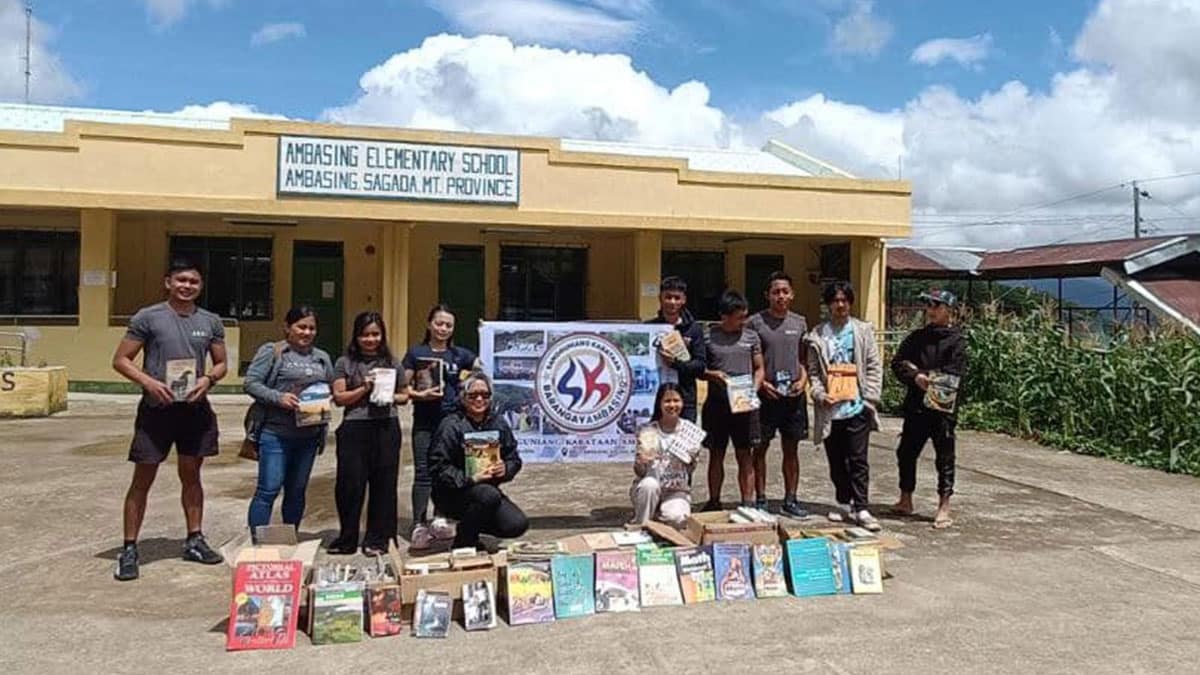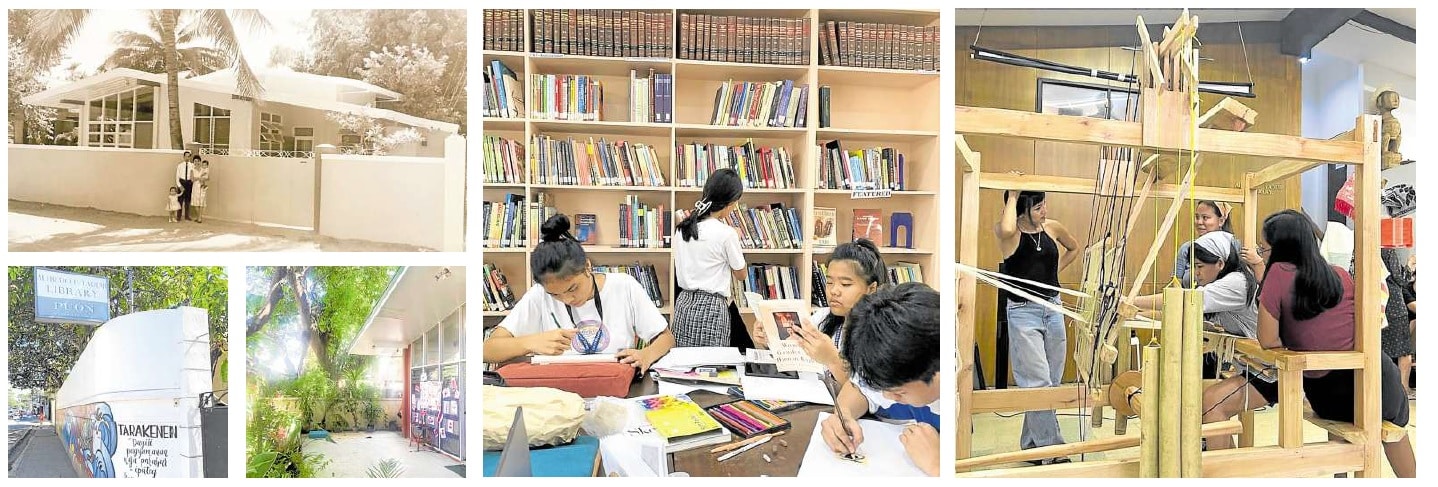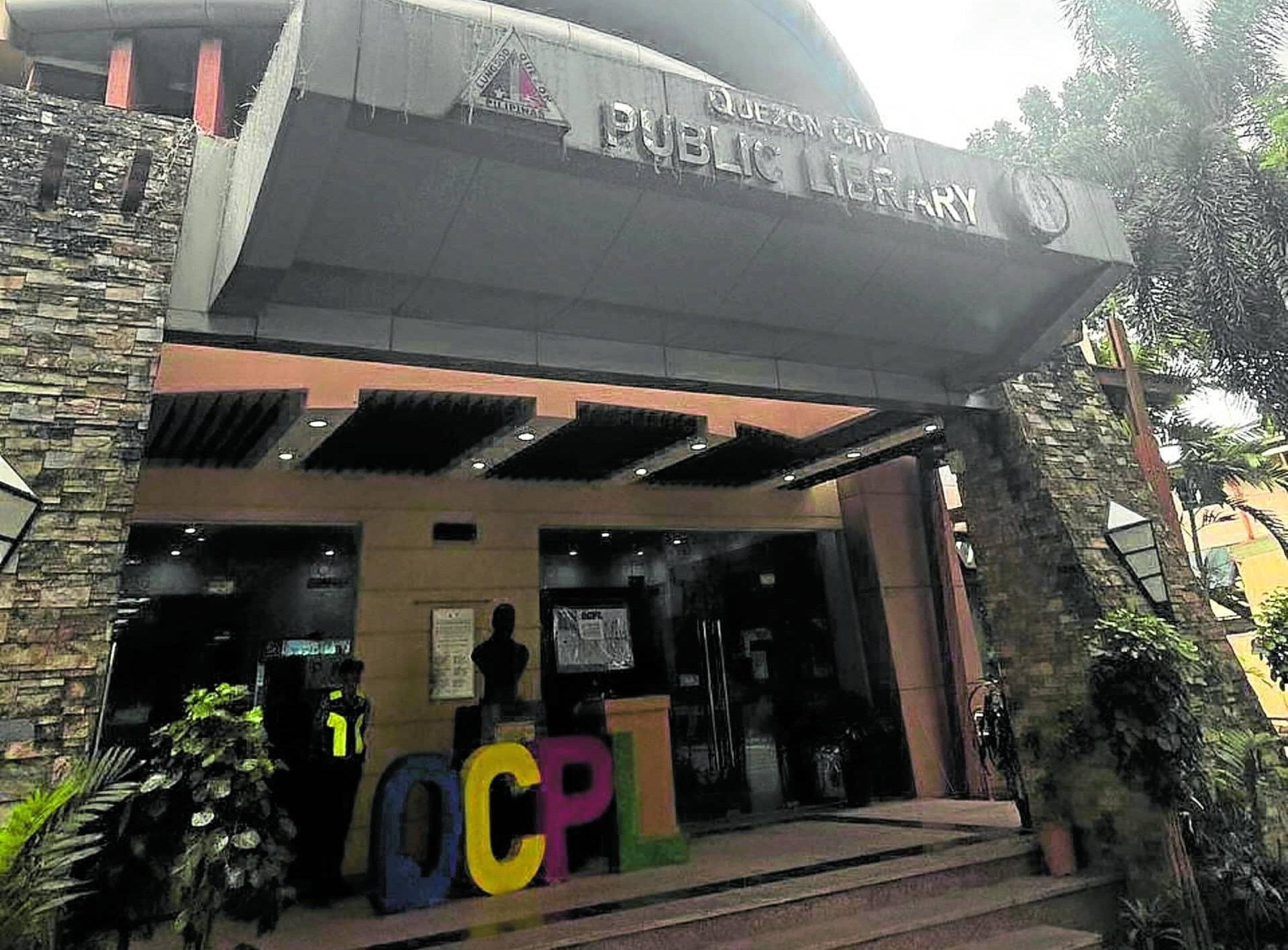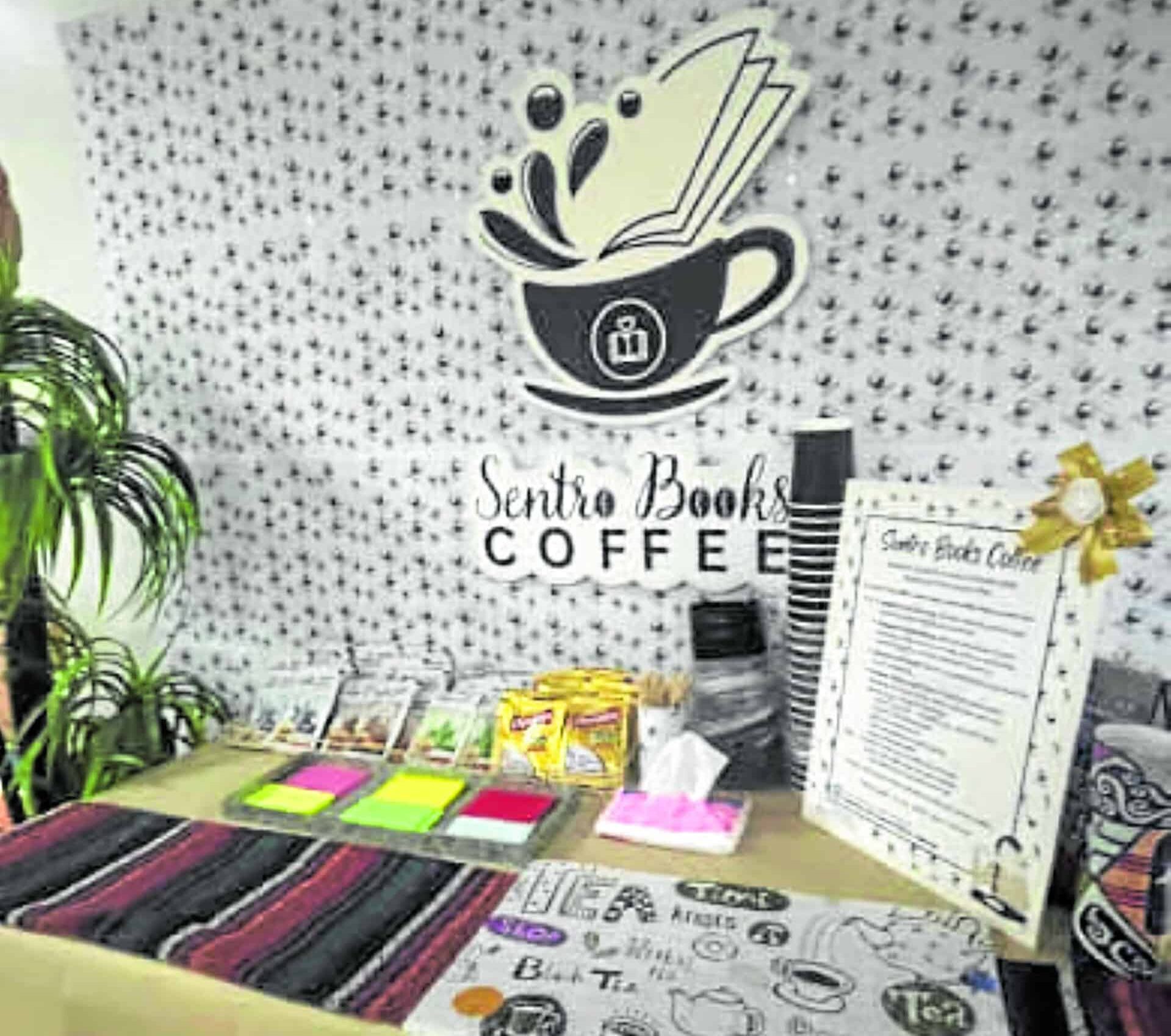4 libraries for the people – and why we need more of them

GETTING HIGH ON BOOKS The Tanggew: Community Library, Eco-Cultural Learning, and Resource Center recently facilitated book donations to the Sangguniang Kabataan of Barangay Ambasing in Sagada, Mountain Province, in time for the opening of a reading center in the upland village. —Photo from Tanggew Facebook page
MANILA, Philippines — Libraries have played a pivotal role in shaping communities and civilizations, serving as gateways to acquiring knowledge and as cultural hubs that connect the past and present, ensuring that history and learning are passed down to future generations.
But, reality check: according to a 2023 research report by the National Library of the Philippines (NLP), the total number of public libraries in the Philippines makes up only 3 percent of the ideal as prescribed by law. Most of these libraries are managed by the offices of the heads of local government units (LGUs), while other libraries are managed by various national and local government offices such as the National Library of the Philippines, Public Information Office, and local Tourism and Cultural Affairs agencies. A few more libraries in the country are under the management of civil society organizations or private or nonprofit organizations.
The report also highlighted that while many libraries fall under the supervision of LGUs, they often lack the necessary resources and support to sustain the library’s operations. The NLP said there may be a need to clarify the role of public libraries in local government plans to help improve their sustainability and effectiveness in serving local communities.
READ: The library’s place in a democracy
Another study, the National Book Development Board 2023 Readership Survey, found that only 18 percent of the surveyed adults and 12 percent of the surveyed children were aware of public libraries within their cities or municipalities. Of these, only 51 percent of adults and 60 percent of children reported having visited these libraries.
We talked to four such libraries—two public and two independent ones—to learn about the common challenges they face, how they work to help shape and empower their communities, and how these avenues for public learning can continue to play a role in national education, literacy, and community-building.
Quezon City Public Library
As the highly urbanized home to a wide array of government offices, vocational schools, and educational institutions, including the main campuses of the University of the Philippines-Diliman and Ateneo de Manila University, and also among the wealthiest cities in the country, Quezon City has taken the right course of maintaining and supporting an active library for its residents.
With around 32 branch libraries spread across the districts of Quezon City, including its main hub in City Hall, the Quezon City Public Library provides various activities for its many visitors. The main library continues to find ways to foster literacy and learning, such as conducting reading tutorials for students.
Mariza Chico, the officer in charge of the Quezon City Public Library, said over 699 beneficiaries have benefited from program, which this year finally saw a standardized model for tutorials.
“Public libraries serve as a source of credible information and a free force in developing literacy in communities,” said Chico. “As a center of information, public libraries not only provide equitable access to library materials, but also programs and activities that elevate the literacy level of people belonging to a particular community, especially those who are underserved.”
Chico, who became officer in charge in 2020, recounted how even during the pandemic, the library was able to keep its community alive through the efforts of its staff and by providing online services such as tutorials and digital resources.

PASSION FOR CULTURE, LETTERS IN LA UNION The Alfredo F. Tadiar Library, once the residence of the Tadiar family (left, top photo), now stands as a testament to its rich history, offering a space for various community activities and cultural events. —Photos from Alfredo F. Tadiar Library Facebook and Instagram accounts
Developing a digitized library is ongoing, said Chico, to enable the institution to adapt to the fast-changing technological environment and to bring the benefits of the library’s resources to many more constituents.
Visit QC Public Library FB page, email qcplibrary@quezoncity.gov.ph, or visit Gate 3 City Hall Compound, Diliman, Quezon City, 1100 Metro Manila.
Sentro ng Karunungan Library
Located in Tutuban Center Mall in Tondo, Manila, is the Sentro ng Karunungan Library, one of the affiliated public libraries of the National Library of the Philippines.
On the mall’s third floor, past the shops and restaurants down below, the library is a quaint, quiet space with tables and desks for private reading and discussion, shelves of books and periodicals, and a coffee nook for visitors who would like to stay a little longer.
After moving to its current location from an old facility in Tayuman, the library now focuses on providing a space for relaxation and learning for all sorts of visitors, from children with special needs to out-of-school youth. The library also offers digital literacy classes for senior citizens.
Darwin Besorio, who started working at the library in 2018 and currently serves as the librarian in charge, wants Sentro to become the go-to review center for students and a sanctuary of other learning resources aside from books.

CATCHING UP ON TECH The main Quezon City Public Library near City Hall is currently taking steps to become a rich source of both printed and digitized materials. —Erin Alcala
“Students, out-of-school youth, senior citizens, children, and even informal settlers, they can all come to the library,” said Besorio, who recalled the challenging times they had promoting the library. The staff handed out flyers and visited schools to spread the word, and these days harness social media to continue to make the library present in the minds of readers and visitors.
“I’m fighting for the library,” said Besorio. “For whatever it can give back to the community.”
Visit Sentro ng Karunungan Library FB page, email sentrongkarununganlibrary2007@gmail.com, call 0966-2640944, or visit 3F, TMX, Prime Block, Tutuban Center Mall, Tondo, Recto Avenue, Manila.
Tanggew: Community Library, Eco-Cultural Learning, and Resource Center
The Tanggew: Community Library, Eco-Cultural Learning, and Resource Center was born out of countless cups of coffee and spirited discussions among a group of passionate individuals committed to making a difference in their community.
Established in 2019 in Northern Sagada, Mountain Province, this community library was created to serve as a vibrant hub for learning, cultural exchange, and community empowerment. With 46 community volunteers, ranging from children to adults, Tanggew promotes collaboration and knowledge-sharing through various activities such as the Read Aloud Program and the establishment of community book pantries.
Alma Toyoken, chair of Tanggew, said the initiative is focused on reviving the spirit of volunteerism in an era dominated by capitalism. At the heart of this vision is a deep commitment for the well-being of the communities in Northern Sagada and other indigenous communities of Mountain Province.

RICH BREW FOR THE MIND A cup of coffee can make a good book even better. At Sentro ng Karunungan Library, visitors can take their pick among various blends in sachets. —Erin Alcala
Tanggew is temporarily housed in one of the oldest homes in Barangay Bangaan, Sagada. The library’s resources are supported by partnerships with organizations like Library Hub Philippines and with local community members.
Aside from using books as resources, Tanggew is looking to develop the concept of a human library, where older Sagada residents are treated as “living books” or oral historians who can share their firsthand knowledge of the region’s culture, history, and traditions.
Visit Tanggew Community Library FB page, call 0915 -0282225, or visit House No. 189, Barangay Bangaan, Sagada, Mountain Province.
Alfredo F. Tadiar Library
To honor Alfredo F. Tadiar, a lawyer, educator, and a pioneer in alternative dispute resolution in the Philippines, his daughter, Neferti Tadiar, converted their family home into a library as a lasting tribute to her father’s legacy and commitment to education.
Founded in 2017, the Alfredo F. Tadiar Library (AFTL) is an independent research and resource center in San Fernando, La Union. When it first opened, Neferti said the response was overwhelming, particularly from young creative individuals who expressed their longing for this type of space in the area.
“I didn’t know there was that demand [for the library], that young people were looking for this,” she said. Neferti, also an educator, now serves as director of the AFTL.
Like Tanggew, AFTL is supported by a dedicated group of volunteers. They organize regular community discussions and events, helping foster a vibrant, collaborative environment. AFTL also regularly hosts book launches, art exhibitions, and public forums, offering a platform for local artists and writers to share their work and engage with the community.

SHELF LIFE (From left) Inside the Tanggew: Community Library, Eco-Cultural Learning, and Resource Center; Quezon City Public Library; and Sentro ng Karunungan Library. —Photos from Tanggew: Community Library, Eco-cultural Library, Learning and Resource Center facebook page and Erin Alcala
The library’s strong social media engagement has helped it attract a diverse range of visitors, from locals and seasonal tourists to international guests. Its well-curated collection includes an extensive Filipiniana collection, making it a valuable resource for researchers and scholars.
Said Neferti: “Libraries change people and empower people, because they give information [that allows] them to decide for themselves and to learn their own histories.”
Visit Alfredo F. Tadiar Library FB page, email aftadiarlibrary@gmail.com, call (072)888 0795, or visit 1 F. Ortega Highway, San Fernando, La Union, Philippines.